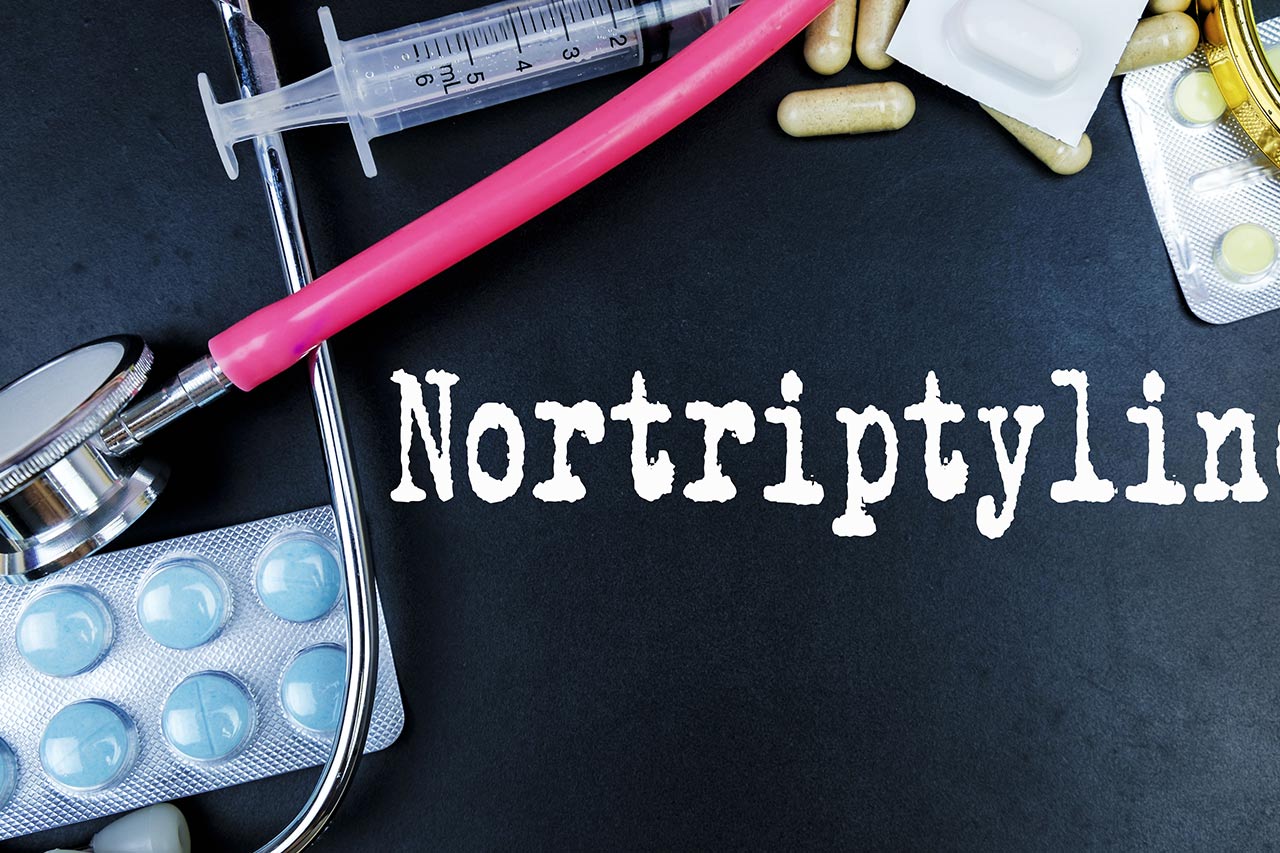Nortriptyline is the generic name for the brand name medication Pamelor, which is used to treat people who suffer from depression and nerve pain. Pamelor belongs to the drug class of tricyclic antidepressants, specifically as part of the second generation of these medications, which were invented in the 1950s. Even though there are less severe and more effective nortriptyline uses and side effects compared to first-generation tricyclic antidepressants, many still wonder whether nortriptyline is addictive. Today we’re looking into Pamelor’s potential for abuse and the possible signs of addiction.
Questions about our Programs?
Our admissions coordinators are available 24/7 to answer any questions you may have as you consider whether treatment at Banyan is right for you or your loved one.
What Is Pamelor (Nortriptyline) and How Does It Work?
When treating depression, nortriptyline works by increasing serotonin in the brain, improving mood and sense of well-being. When used for pain relief, nortriptyline changes the way your nerve cells fire and receive pain signals from the body.
Second-generation tricyclic antidepressants like nortriptyline produce side effects that are less severe than those of their predecessors. Pamelor is usually chosen as the second line of treatment for major depressive disorder after doctors first try to treat the patient with a selective serotonin reuptake inhibitor (SSRI). SSRIs like Prozac and Lexapro are part of a newer generation of antidepressants that have higher success rates and produce less severe effects compared to tricyclics.
However, for people who are unresponsive to SSRIs, tricyclics are the next best thing. What’s more, tricyclics like Pamelor are more successful in treating melancholic depression than SSRIs. This is a form of depression that’s characterized by extreme apathy and anhedonia (inability to feel pleasure). Aside from treating depression, other uses for nortriptyline include chronic pain, migraines, neurological disorders, and childhood bedwetting.
What Are the Side Effects of Nortriptyline?
Pamelor is a cumulative drug, meaning it might not work right away. It usually takes time for it to accumulate in the user’s body and can take anywhere from 7 to 14 days or even a month for its effects to kick in. During this time, it’s important to take nortriptyline as prescribed to ensure that it eventually alleviates symptoms and works as it’s meant to.
With that, it’s normal for some unwanted Pamelor effects to occur in new users as their bodies become accustomed to the medication.
Some common side effects of nortriptyline include:
- Dry mouth
- Severe stomach or abdominal pain
- Constipation
- Dizziness
- Lightheadedness
- Persistent heartburn
- Mask-like facial expressions
- Muscle spasms and twitching
- Shaking or tremors
- Decreased sexual drive
- Enlarged and/or painful breasts
Most of these side effects – such as dry mouth, constipation, and dizziness – are manageable and usually go away as the body becomes accustomed to the drug. However, because Pamelor increases serotonin in the brain, serotonin syndrome is a rare yet very possible risk.
Seek medical attention immediately if you experience any or more of the following side effects:
- Shivering and goosebumps
- Severe headache
- Confusion
- Agitation or restlessness
- Fever
- Tremor
- Diarrhea
- Dilated pupils
- Fluctuations in blood pressure
- Nausea and/or vomiting
- Rapid heart rate
- Muscle twitching
- Excessive sweating
Is Nortriptyline Addictive?
No, nortriptyline is not considered to be psychologically addictive as drugs like cocaine or heroin are because Pamelor does not produce highs or drug cravings when it’s discontinued. Therefore, it’s considered to have a low risk of abuse and addiction. However, rapid discontinuation after long-term nortriptyline use can lead to uncomfortable and painful side effects known as withdrawal symptoms.
Withdrawal symptoms are common in patients who suddenly discontinue their doses after taking Pamelor for long periods. These symptoms are generally treated with medically monitored detox or under the guidance of medical professionals. It’s advised that you seek out medical support if you’re looking to stop taking nortriptyline or any medication.
Get a Free Insurance Verification Today!
"*" indicates required fields
Help for Nortriptyline Abuse
Although nortriptyline addiction is not necessarily a possibility, many people do abuse antidepressant drugs by mixing them with other depressants, like alcohol, to boost their side effects and experience extreme sedation. The co-occurrence of substance abuse and mental illness is also common, as many people with depression and anxiety take up drug and alcohol abuse to self-medicate.
In these cases, the risks of addiction and physical dependence are heightened, as well as those of developing serotonin syndrome and overdosing. Thus, it’s important to always take prescription drugs as directed by the prescribing doctor. If you’re struggling to discontinue nortriptyline use or find yourself abusing it with other drugs, our drug and alcohol treatment center in Palm Beach can help.
We offer both mental health and addiction treatment in Lake Worth, FL, including programs specified to assist patients who are addicted to alcohol or their medications recover. From medically assisted withdrawal treatment to dual diagnosis treatment for co-occurring disorders, the specialists at BHOPB are trained and ready to help you or a loved one with anything you might need to get sober.
To learn how to get started with one of our addiction or mental health treatment programs in Palm Beach, call Behavioral Health of the Palm Beaches today at 561-220-3981.
Related Reading:













